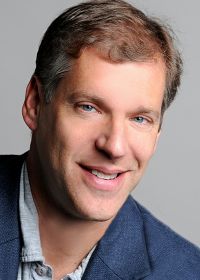
Ever heard of California’s “Low Carbon Fuel Standard”? UC Berkeley prof Dan Kammen co-wrote it. What about the terms “cap and trade” and “carbon offsets”? Kammen helped popularize these concepts for the American public and transform the way we view energy consumption.
As director of the Renewable and Appropriate Energy Lab at the University of California, Berkeley — where he also holds appointments in the Environmental Resources Group and the Department of Nuclear Engineering — Kammen integrates scientific, policy and business research, then translates his research into action. He has served as Chief Technical Advisor – popularly known as the “Energy Czar” – to the World Bank and published innumerable books and academic articles.
On June 4th, Kammen will be speaking at Acterra’s Beyond Fossil Fuels lecture series about how we can shift away from carbon-based fuels using promising new technologies.
BN: What is your connection to the Bay Area?
Kammen: In 1998 I was Associate Professor of Public and International Affairs at Princeton University. The Energy and Resources Group here at Cal is world-famous, and they asked if I would be interested in joining the group. I was, so I joined that summer.
What drew me here was not just the climate or the environment, but the people. There are people studying climate change, people engaged in clean technologies – all kinds of wonderful, different people.
BN: How well are we doing in the Bay Area with regards to minimizing the use of fossil fuels?
Kammen: We’re doing a very good job locally. Many good ideas originate here, and then they’re supported by both public officials and also by government spending. This is not the case in the rest of the world. However, it is not possible to solve problems like climate change locally. Ideas need to spread out to other areas, to other states, to other countries.
BN: What about the state?
California has been the leader in this arena for decades. Policies on greenhouse gas emissions, the amount of renewable energy that must be used, and regulations about energy efficiency surpass those of anywhere else. One way my lab pitches in is by building and maintaining GHG calculators that Gov. Schwarzenegger initially asked me to develop.
But the most important feature goes beyond innovation. California has what I call a “dense” network of energy regulations: Policies interact with one another in a coordinated way. So, for example, climate laws support water conservation laws.
BN: Is there more that we can and should be doing?
Kammen: Yes, there are lots of areas where we need to work harder: better and more efficient buildings; GHGs associated with the foods and the items we buy; more efficient cars . . . .
Also, California’s policies have not sufficiently spread. The business side of things is what connects us with other places. For example, California is engaged in cross-border carbon trading with Quebec. We have a similar relationship with Acre, Brazil and Chiapas, Mexico. Bay Area residents need to play a bigger role in Washington D.C., communicating more regularly with our elected officials about matters of concern to us.
BN: You write about the “activist scholar”. Does this describe you and your work?
Kammen: We work with business to change policies, providing high quality scientific research in support of an activist engaged agenda. For example, my lab does research on low carbon technologies, such as solar energy, and it also works with Native American communities in the Sierras and out of state to provide energy efficient homes and generate renewable energy on tribal lands for local use and for sale to the utilities.
BN: What happens in your lab?
Kammen: My lab group includes twenty students and post-doctoral fellows. If you walked in, you’d see students in front of computers, building models of various environmental, energy or policy scenarios. For example, we’ve been exploring the use of “mini-grids” in Sudan.
You’ll also see my students spending time in the field. This summer we’ll be in Malaysia, working to develop ways to minimize energy consumption, as well as implementing some of our ideas in Sudan. We’ll also be working with the government of California providing scientific data that supports our ideas.
BN: You write of the importance of developing “practical innovations”. What have you developed?
Kammen: One example is a very low-cost method of disinfecting water that we developed and which has won a series of environmental prizes. We’ve also done pioneering work in sub-Saharan Africa monitoring emissions from cook stoves [from unprocessed biomass like wood and cow dung] which can have devastating personal health effects.
On the policy side of things, we were instrumental in the passage of AB32, California’s greenhouse gas law, which brought “carbon offsets” and “cap-and-trade” to the public’s attention. I wrote the Low Carbon Fuel Standard. And AB 811 (also known as PACE, Property Assessed Clean Energy program) has now been adopted by thirty states.
BN: What’s your favorite outdoor destination in the Bay Area?
Kammen: The Anderson Valley in Mendocino County, along the Navarro River out to the coast. And I live up by the Chabot Space and Science Center, so I’m in Redwood Regional Park daily; I go running there with my black Lab.
>> Dan Kammen will speak at Acterra’s Beyond Fossil Fuels lecture series on June 4th. Click here for more information and directions.

-224x300.jpg)